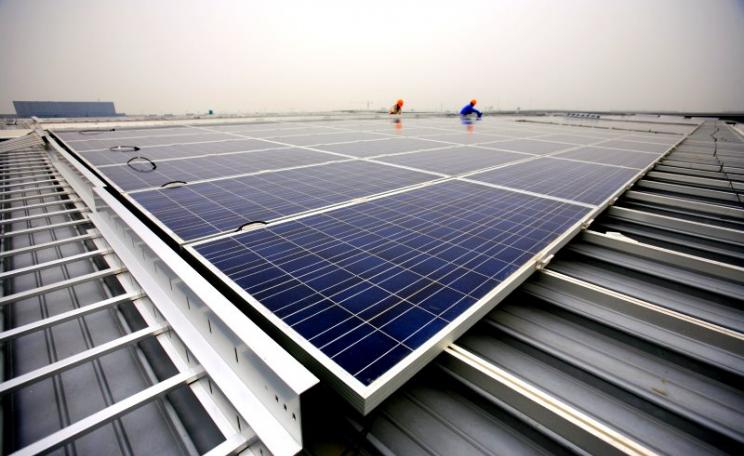The more there is rage, the more it's likely autocrats will float to the top especially with this apparatus that's coincidentally been developed by our tech community.
Jeremy Leggett speaking at a Resurgence Talk in November 2017
The cost of clean technology has plummeted in recent years and analysts estimate that by 2025 the average price of solar will be cheaper than any other form of energy. Good news you may think.
But in his Resurgence talk, Dr. Jeremy Leggett warns that the various technological advances - that have led major banks to divest from dirty power, energy companies to ditch fossil fuels and leading car manufacturers to switch to electric engines - could also be exploited by despotic nations with dangerous outcomes.
Jonathon Porritt, the co-founder of Forum for the Future is an eminent writer, broadcaster and commentator on sustainable development, will be giving the next Resurgence Talk in London on 28 March 2018. More details here.
The people
Dr Leggett offers two versions of a possible future when looking at the unprecedented advancement in technology from clean energy to AI, humanoid robots to invasive surveillance.
He envisages a world where technology is used to enhance society in his first scenario, the so-called “Ascent of civilisation”. Cleaner technology becomes the cheaper, dominant energy source, leading to cleaner air, economic gain and improvements in international relations.
But in his second “Descent into hell” scenario the same advances in technology are being used to discriminate, disrupt democratic elections and carry out coordinated attacks on defenders of democracy worldwide.
He argues elements of both stories exist today and if society wants to avoid the descent into hell then action on a number of fronts is required.
He says governments need to negotiate multilateral treaties like they did on arms control and climate change, our system of capitalism needs an urgent overhaul and citizens need to engage and mobilise.
He argues that what may or may not transpire in the future is very much down to the will of the people.
Far from being powerless in the face of adversity he says there are constructive precedents to draw on to suggest that populations can influence their governments to act on urgent issues.
This speaker
Dr Jeremy Leggett is a social entrepreneur and writer. He founded and is a director of Solarcentury, an international solar solutions company and founded and is chair of SolarAid, a charity funded with five percent of Solarcentury’s annual profits that builds solar lighting markets in Africa.







